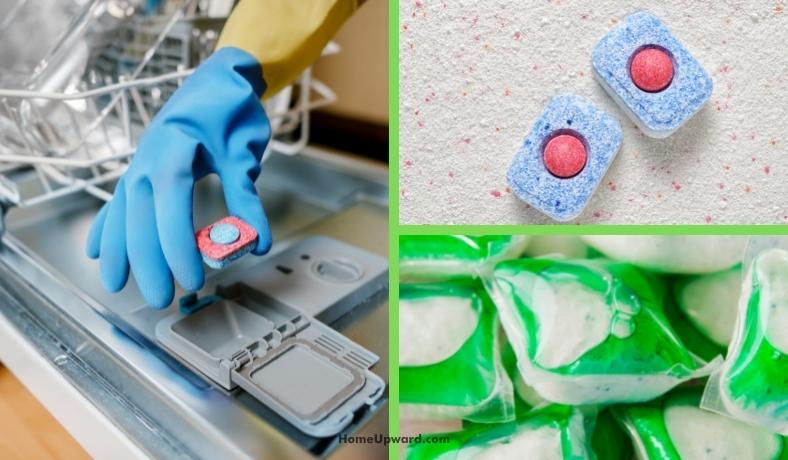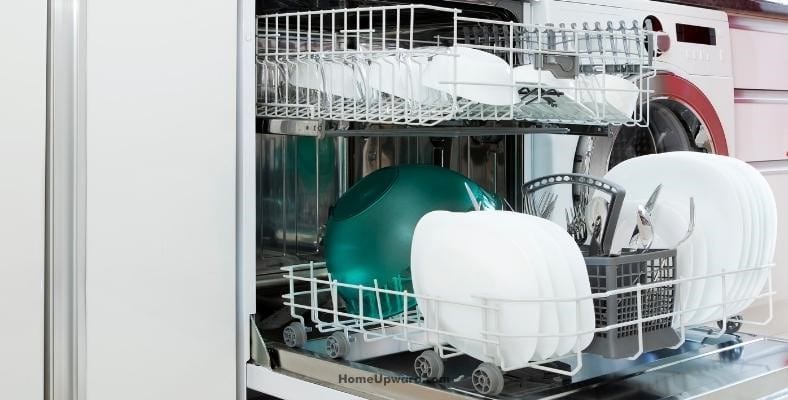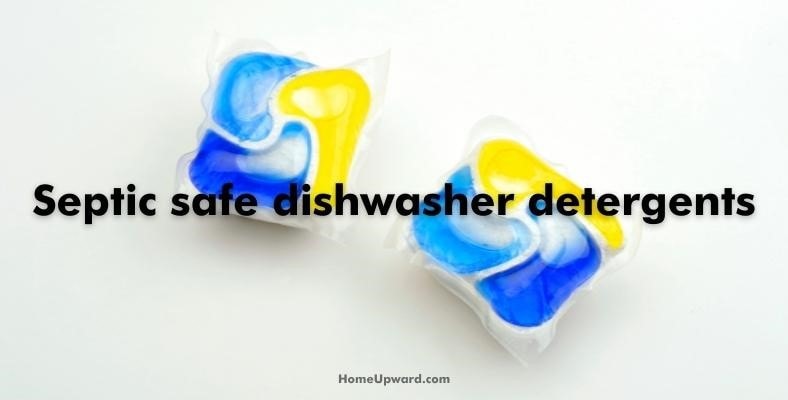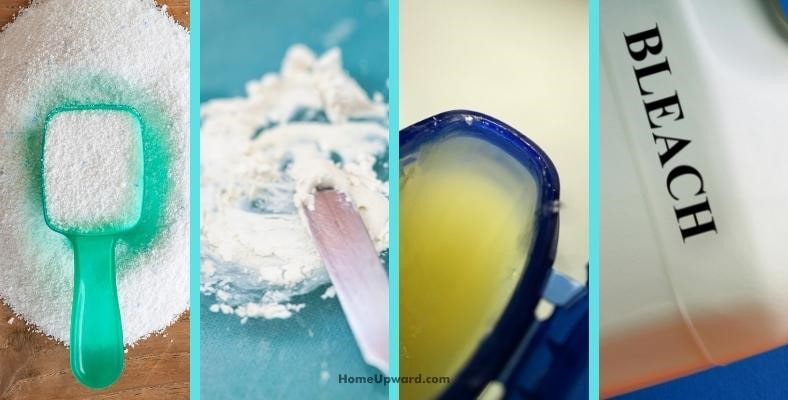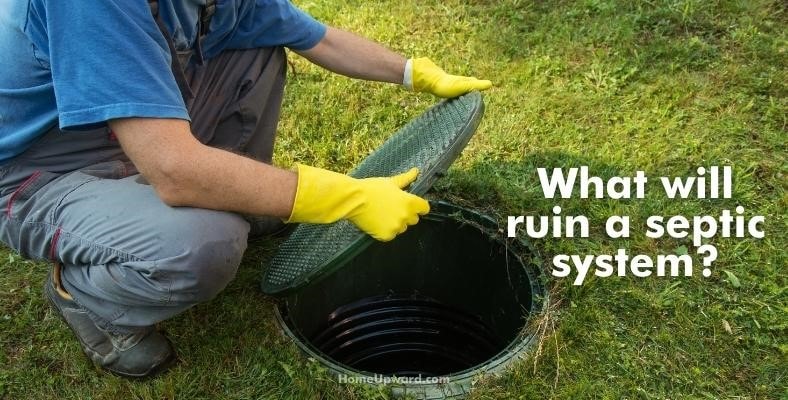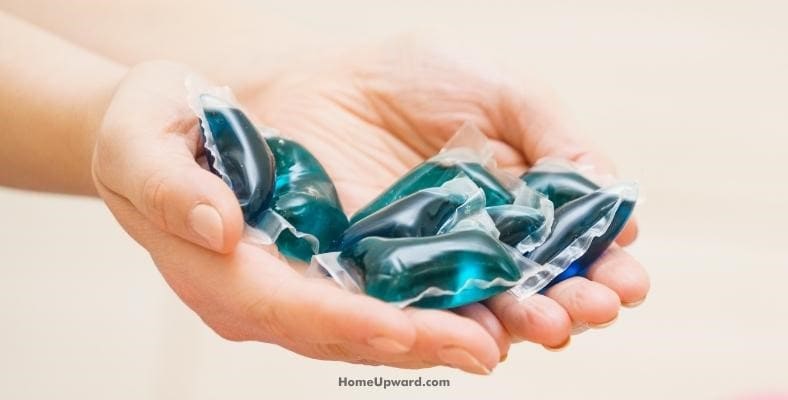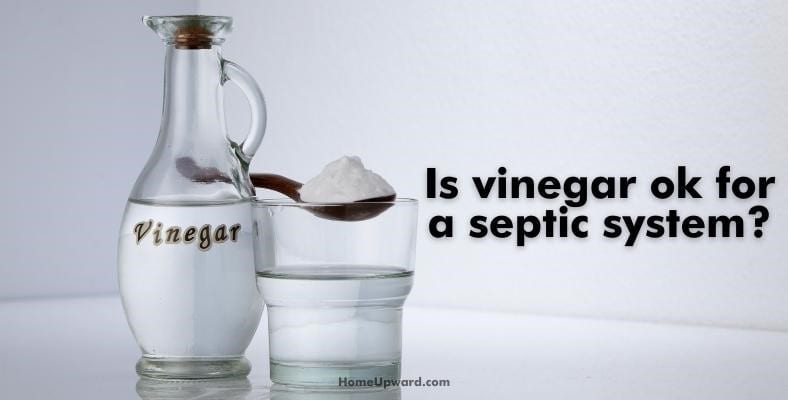If you have a septic tank you’ve probably heard the warnings about how using the wrong kind of detergent can cause problems. I’ll explain the problems some types can cause, the right type of detergents to prevent it, and several other great tips you’ll find handy.
Contents
Are Dishwasher Detergents Safe for Septic Systems?
Not all dishwasher detergent on the market is safe for your septic system. You can think of your septic tank as a living organism.
Unlike a regular sewer system as you’ll find in the city it needs bacteria to break down waste materials in the system. When you introduce harsh chemicals into the system it prevents the system from running well and can start causing problems for you.
What to Avoid in Dishwasher Detergent to Protect Your Septic System
There are several septic-safe dishwasher detergents out there. When shopping for detergent, you’ll want to look for products that are:
- Biodegradable – Can break down quickly by bacteria
- Eco-Friendly – Not harmful to the environment
- NON-Antibacterial – Doesn’t contain the chemical triclosan found in antibacterial soaps
- Phosphate Free – Contains no phosphates, which are harsh chemical additives
Why Are Phosphates Bad for Your Septic Tank?
You’ll find phosphates in many home cleaning products because they do wonders for cleaning dirt and grime. Unfortunately, while phosphates are great for cleaning, they’re not great for septic tank systems.
When you introduce phosphates from dishwasher detergent or other sources into your system, it can kill the good bacteria and other enzymes that help decompose the waste in the septic tank.
When your tank can’t break down waste, you’ll be in a tricky situation. Also, phosphates can seep into the water and soil around your tank and contaminate local plants and waterways.
Septic Safe Dishwasher Detergents
If you don’t want to spend hours searching the shelves of your local store or web pages for septic-safe dishwasher detergents, here are some of the most popular and best septic-safe detergents:
- Solimo Dishwasher Detergent Pacs
- Seventh Generation Ultra Power Plus Dishwasher Detergent Packs
- Ecover Automatic Dishwasher Soap Tablets
- Dropps Dishwasher Detergent Pod
- Biokleen Automatic Liquid Detergent
Both dishwasher pods and liquid detergent work well. You can also make your own septic-safe dishwasher detergent with washing soda, kosher salt, citric acid, and borax powder.
The best part about making DIY detergent is that you can get all these ingredients at your local grocery store!
What Cleaners Should You Not Use With a Septic Tank?
The best detergents to buy are plant-based or from approved septic-safe brands. When shopping for dishwasher detergent and septic-safe laundry soap, you’ll want to carefully look at the ingredient label to make sure you’re not purchasing anything harmful.
Even when looking at other cleaning supplies, you’ll want to avoid anything that contains:
- Ammonia
- Phosphates
- Petroleum-based chemicals
- Toxic bleach
What Will Ruin a Septic System?
Having a septic tank system means knowing what can damage or ruin it. Several items and ingredients can damage your septic system – especially those with harsh chemicals.
9 Things to Watch Out For
While several items can ruin your septic system, here are nine of the most common ways people accidentally cause damage to their system due to a lack of knowledge.
Flushing Paper Products
If you’ve always had a regular sewer system, you’re used to flushing flushable paper down the toilet. You need to be sure you’re using septic-safe paper products when you have a septic tank.
That’s because paper can easily clog your system. Even when you use septic-safe paper you can run the risk of clogs if you’re not careful.
Pouring Grease Down the Drain
When you’re cooking and need to get rid of the excess grease, it’s natural to think about flushing it down the sink drain.
Doing this with a septic system will clog it and make it near impossible for water or other material to pass through.
Too Much Drain Cleaner
Drains clog over time whether you have a septic system or not. Drain cleaner is a great tool but harsh chemicals may remove the clog when you have a septic system.
Be careful as they can strip the good bacteria from your tank.
Using Additives With Your System
Additives can contain harsh chemicals which clog your system and kill the good bacteria. It’s best to avoid these altogether.
Flushing Cat Litter
You should never flush cat litter because the build-up of litter in your tank over time will make it break or work less well. It’s always better to take your used cat litter to the garbage outside.
Not Pumping Your Septic System Regularly
Septic tank pumping is important. If you don’t pump your septic system often enough (three to five years is average), then the solids in the tank can build up and the holding capacity will decrease.
Eventually, the solids can reach the pipe, cause a clog, and wastewater can back up into your home.
Planting Shrubs, Bushes, or Trees on the Drain Field
Plants with invasive roots can move into the septic system and cause damage.
Washing Machine Lint Overload
You need to clean your dryer’s lint trap frequently because this excess lint can get into the septic tank system and cause a clog or backup.
Garbage Disposal Use
You can still use your garbage disposal with a septic tank, but the more you use it, the more solids you’re introducing into the tank. This may cause you to pump the system more often to ensure that it doesn’t overflow.
Are Tide Pods Safe for Septic Systems?
Yes! Tide Pods and their other laundry detergent products are marked safe for septic systems.
Since they’re designed to break down quickly with water, as long as you use them correctly, they shouldn’t cause a problem.
Is Vinegar Ok for a Septic System?
Vinegar is excellent for septic systems. Vinegar and water are gentle enough not to cause any clogging or harm to your system.

